MenuOptimizer: Interactive Optimization of Menu Systems (UIST'13)
Menu systems are challenging to design because design spaces are immense, and several human factors affect user behavior. This paper contributes to the design of menus with the goal of interactively assisting designers with an optimizer in the loop. To reach this goal, 1) we extend a predictive model of user performance to account for ex- pectations as to item groupings; 2) we adapt an ant colony optimizer that has been proven efficient for this class of problems; and 3) we present MenuOptimizer, a set of inter- actions integrated into a real interface design tool (QtDe- signer). MenuOptimizer supports designers’ abilities to cope with uncertainty and recognize good solutions. It allows designers to delegate combinatorial problems to the optimizer, which should solve them quickly enough without disrupting the design process. We show evidence that satisfactory menu designs can be produced for complex problems in minutes.
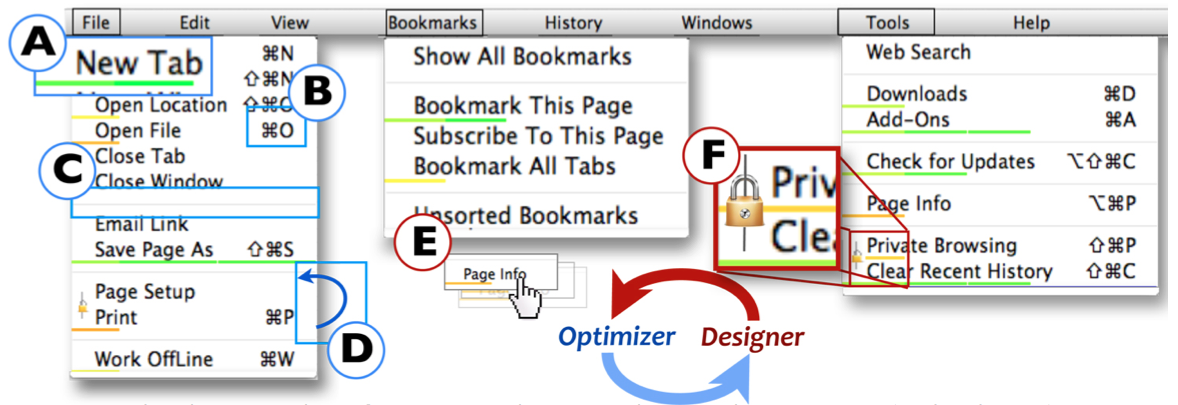 |
| MenuOptimizer assists in the design of menus: While the designer edits the menu (action in red), a model-based optimizer updates itself to provide feedback and suggestions (in blue): A) Item feedback indicates the frequency (line width) and user performance over time (color gradient). B–C) Hotkeys and separators are automatically assigned. D) Item placements to improve user performance are suggested. E) Designers can normally edit items (move, delete, etc.) and also F) lock items to constrain them together to accelerate optimization |
| MenuOptimizer integrates optimizer-based assistance into the QtDesigner interface: A) The menu is edited. B) Objective Panel allows the designer to set the weights for three optimization objectives: performance, consistency, and similarity to the present menu. C) Template Gallery shows new menu system suggestions () on a Pareto front plot with user performance (y-axis) and consistency (y-axis) and (D) a preview of the menu. The current menu system (X) is shown to aid in comparison. E) User Profile Graph shows predicted performance for each user. F) Association Panel allows editing of assumptions about how closely related command pairs are. | 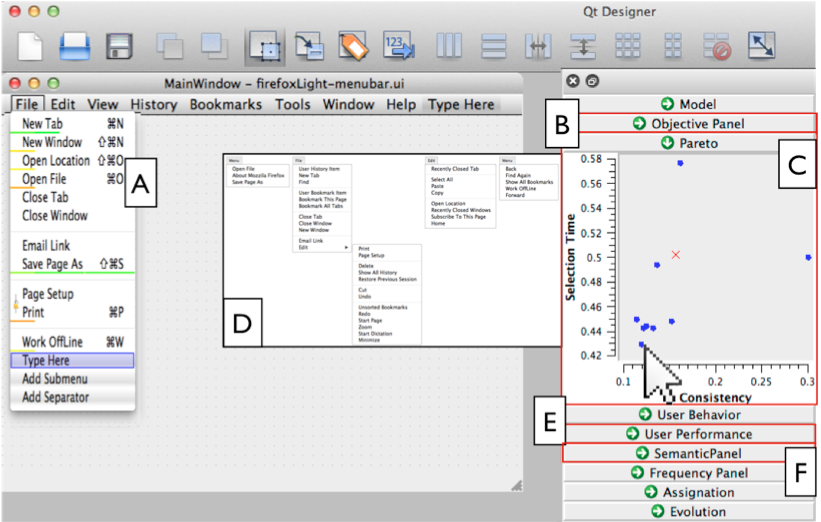 |
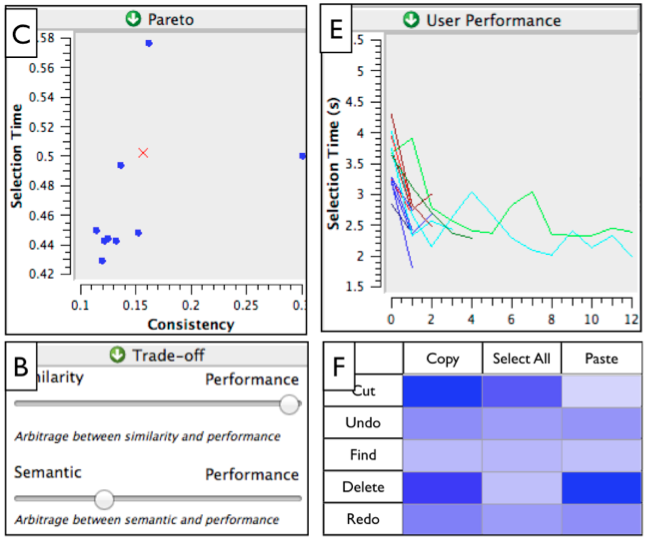 |
|
| Results of long-term optimization benchmarked against the Metropolis keyboard [34]. The JUSTHCI keyboard (43.9 WPM) outperforms Metropolis (43.1 wpm) | 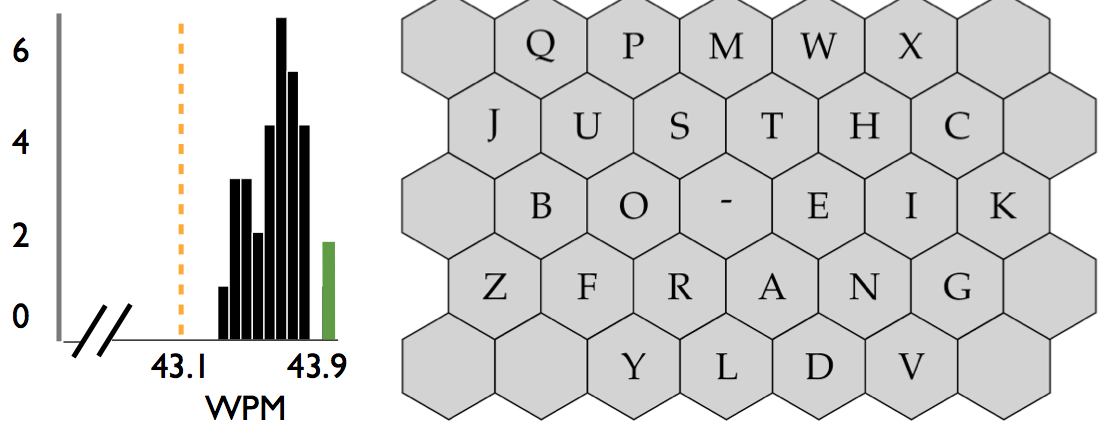 |
References
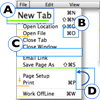 |
Gilles Bailly, Antti Oulasvirta, Timo Koetzing, Sabrina Hoppe MenuOptimizer: Interactive Optimization of Menu Systems ACM UIST'13, 11 pages. |